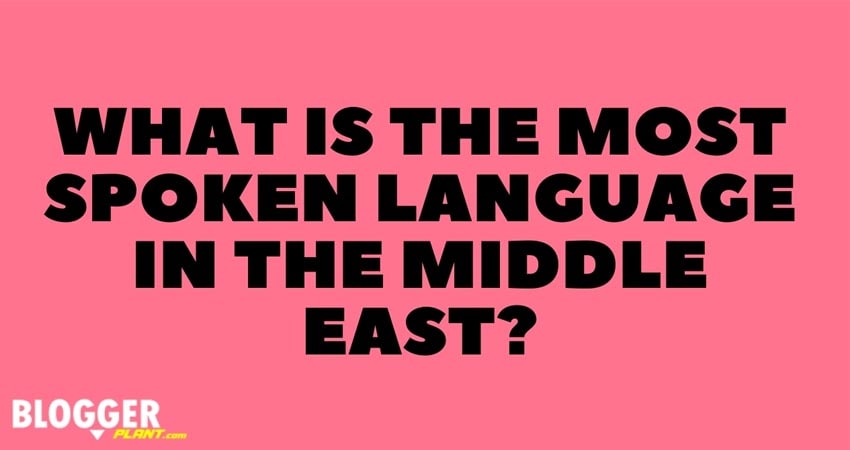The most spoken language in the Middle East is Arabic. It is estimated that there are 300 million native speakers of the language, and it has become a major international language due to its connection with Islam. Other languages used in this region include Turkish, Persian (Farsi), Kurdish, Armenian, Hebrew and Urdu.
In addition to being an official language for some countries including Iraq and Egypt, many people speak Arabic as a second or third language which they learned in school or from their parents.
Contents

It’s hard to say what the most spoken language in the Middle East is. It can be argued that Arabic is the most widely spoken, with around 280 million native speakers and another 220 million people speaking it as a second language.
There are also other languages such as Persian, Kurdish, Urdu, Armenian, Hebrew and Turkish which have speakers of over 10 million each. Arabian has been the most spoken language in the Middle East for centuries, but it is not without competitors.
Other languages that are spoken on a regular basis in the region include Persian, Hebrew, and Turkish. However, many of these languages share some degree of mutual intelligibility with Arabic so it can be difficult to ascertain their exact number of speakers.
The Middle East is home to many different languages. This includes Arabic, Hebrew, Kurdish and Russian. There are also other minority languages in the region that have yet to be studied by linguists. Many of these languages are endangered with only a few thousand speakers left.
But despite this, they still hold great value for their communities and should be preserved as much as possible. In order to make sure that these languages live on in the future, we must provide resources for people who want to learn them today.
Many people believe that all of the Middle East speaks Arabic. In reality, however, only about 20% of the population in this region speak Arabic as their native language.
The other 80% speak various other languages such as Persian (Farsi), Kurdish, Turkish and Hebrew. This blog post will discuss these different languages and how they are used differently throughout the Middle East.
Why are people from the Middle East speaking Arabic? Why is it so important to learn Arabic in schools, and why do some countries require all citizens to speak Arabic? Is there a connection between the language of English and that of Arabics? These questions, as well as many others, will be answered below.
The debate over whether or not we should teach children how to read and write in their native languages has been going on for centuries. In recent years, more evidence has emerged supporting this stance. Educators have found that students who are taught in their mother tongue.
Show greater engagement with school work and perform better academically than those who attend classes in a foreign language (DeMatta). Furthermore, studies suggest that bilingualism can delay cognitive

About MD Showal Soshi
I am MD Shawal Soshi, Content writer, SEO expert. I have been working in the field of digital marketing for more than 5 years and helped many companies to achieve their business goals with my professional knowledge and skills. My area of expertise includes writing on a variety of topics like travel, technology, finance etc.
 |
 |
 |
 |
Recent Post
Let's try FREE Giveaways. Or go to Free Gifts page
Update AdBlock to see the secrets. Hit a button below for update
 |
 |
 |
 |